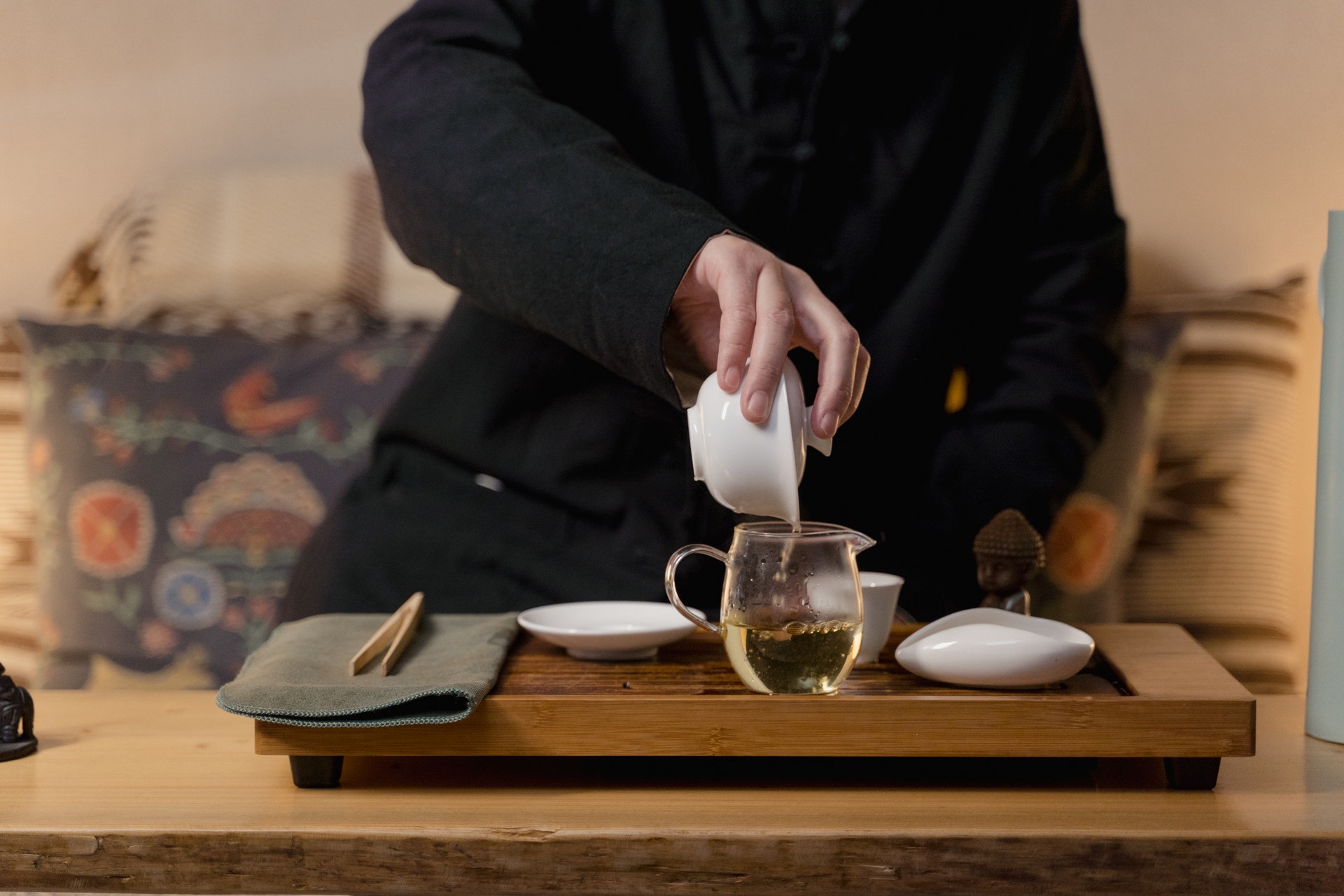
Body + Mind is reader-supported. We may earn an affiliate commission when you buy through some of the links on our site.
Maybe you’re one of the many who switched from coffee to tea. If so, you have a whole new world to explore, including matcha vs green tea.
One of the hottest tea trends today is matcha. What is this beverage? And is it healthier than green, the traditional recipient of health accolades? Here’s the skinny on matcha vs green tea — find out which is healthiest.
You might be surprised to discover that matcha comes from the same plant as green tea. What’s the difference, then?
Most tea leaches components from the leaves into the beverage, then discards the leaves once you attain the flavor you desire. Matcha consists of the whole leaf, ground into a fine powder and blended into the liquid. As such, you get a stronger concentration of antioxidants than you do with traditional brews.
The way producers cultivate the plant likewise differs. When making matcha, farmers cover the tea plants before they’re harvested. This step enhances the flavor and texture of each leaf.
Farmers then hand-select leaves, steam them to stop the fermentation process, and dry and age in cold storage to deepen the flavor. Finally, they grind the leaves into a powder fine enough to dissolve in liquid.
The increased antioxidant content is one argument for green tea. Another is the overall nutritional value. A single serving of matcha has only five calories but still delivers a gram of protein. It also contains dietary fiber to improve your digestion. It provides a generous dollop of vitamins A and C to round out the portrait.
Matcha also benefits liver health, improving its ability to remove toxins from your body. This beverage contains a high level of chlorophyll. Yes — that is the substance that helps plants convert energy from the sun. It also carries more oxygen to your liver so that it can do its job more efficiently.
Green tea is also high in antioxidants, although not as many as matcha. However, it’s also lower in calories — it has none at all, at least if you don’t add milk or sugar.
Research shows that women who drink green tea tend to live longer than those who do not. This substance is heart-healthy, with 2% of your recommended daily allowance of potassium, a mineral that helps flush excess sodium from your system. It can help reduce your blood pressure and heart disease risk.
Green tea contains high levels of an antioxidant catechin known as epigallocatechin-3-gallate (EGCG). This substance gives the beverage its anti-cancer, anti-inflammatory and cardio-protective properties. However, matcha also contains this substance — three times the amount.
The bottom line: Both green tea and matcha benefit your health. But if it’s a megadose of antioxidant and nutritional goodness you’re after, matcha is the clear winner.
Are you ready to experiment with green tea and matcha in your life? Try one of these recipes to tempt your taste buds while improving your health:
Who wins in the battle of matcha vs green tea? While matcha has decided benefits, both of these beverages will keep you on the road to positive good health.
Your email address will only be used to send you our newsletter, and at any time you may unsubscribe. For more information, see our Privacy Policy.